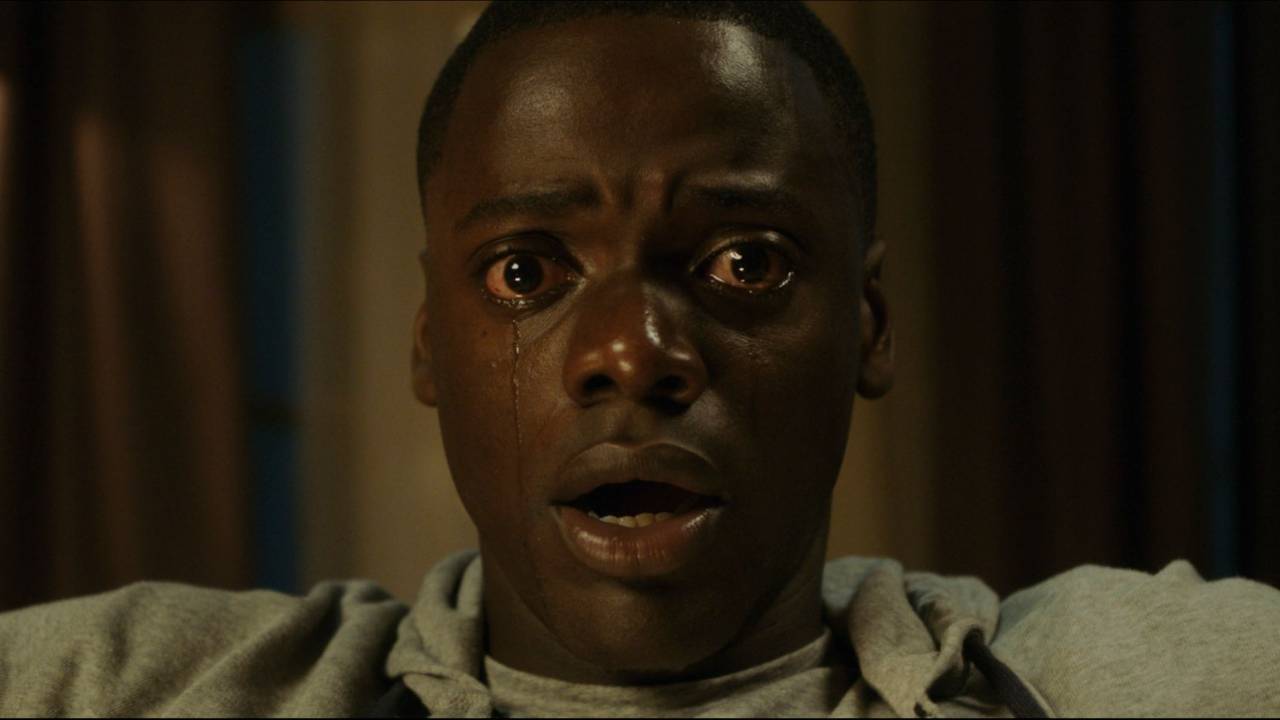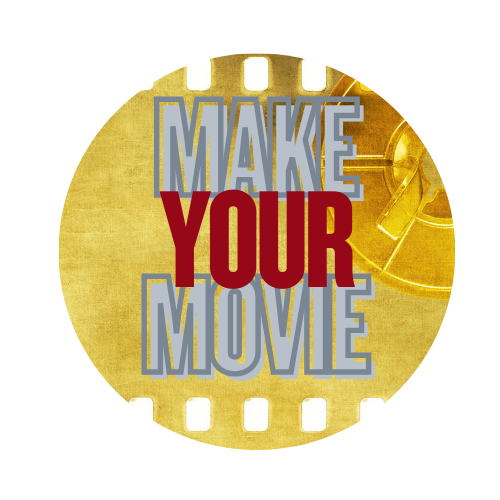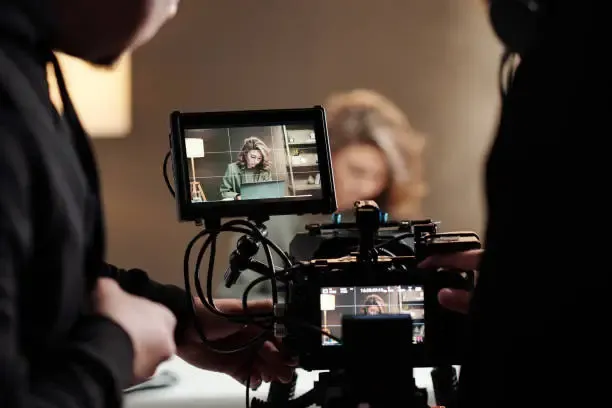🎬 Why Movies Still Matter: The Art Form That Refuses to Die
Nov 17, 2025
Movies have been declared dead more times than I can count, and well before I became a filmmaker. Every decade, someone swears it’s over.
Television was supposed to kill movies.
Home video was supposed to kill movies.
Netflix! (To be fair, streaming) was definitely supposed to kill movies.
And yet… here we are.
Movies are still here — stubborn, powerful, transformative — refusing to fade into the background noise of our hyper-distracted world. Recently, there was a report in Variety that said Gen Alpha is actually more interested in seeing movies in the theater than Gen Z. Good news for movies, but also — come on, who thinks movies are dead, and why would you?
When I say I love movies, I’m not talking casual love (I guess that’s obvious by my career choice) — I love, love, love movies. And anytime I say something three times, I really mean it. So yes, selfishly, I don’t ever want the artform to die.
To me, movies aren’t just entertainment. They can transport you to another time. They can teach you things — sometimes subliminally, sometimes with message movies — do we still call them that? Even the most “purely entertaining” film, whether it’s a horror movie or a comedy, carries truth in it. Movies are snapshots of who we are in any given moment. They can make a point, spark a conversation, or ignite a movement. They stimulate your senses. They stick with you. Years later, you can point to a movie and remember where you were in your life when you watched it, and how it made you feel.
A good movie can stir your soul, and I can tear up just thinking about a movie that touched me.
It can shift your perspective — I know a few people who took steps to repair family relationships because of a movie they saw.
It can introduce you to different cultures — and we need more of this right now.
That’s why this medium is powerful — and why it matters. I hope I don’t sound too airy-fairy. 🧚
🎥 Movies Are Time Capsules of the Human Experience
A great film stops time.
It freezes the chaos of the world long enough for you to sit, breathe, and step into someone else’s life. Going to the movies is my version of self-care. Having a good cry at a movie is therapeutic. In fact, that used to be my criteria for judging whether a movie was good or not — did it make me cry?
Movies document eras — politics, culture, fashion, attitudes, neighborhoods, entire generations of people who might otherwise be forgotten. Think Blaxploitation films in the early 1970s, and the later films they inspired. Although controversial, many of these films were viewed as empowering to the communities they represented.
Movies capture how we love, fight, hope, grieve, and try again.
They are emotional archives.
And years later, when we revisit them, we see how far we’ve come as individuals and as a society. As a side note, I’m not a fan of revisiting a film from the past, and judging it based on where we are in society today. To me, that’s tantamount to revisionist history. Let it be what it is, and if necessary, use it as a teaching tool.
🎬 They Build Empathy Like Nothing Else
Movies are empathy machines. Think The Shawshank Redemption or Cooley High — who among us don’t pour out a little liquor for the bruthas who ain’t here?
You spend two hours inside someone else’s worldview — someone whose life may look nothing like yours. And it does something to you.
A well-directed close-up can make you care about a stranger’s isolation.
A single line of dialogue, and now you have total understanding of a character and her motivations.
A long tracking shot can pull you into a world you never would have entered on your own.
That’s not just entertainment — that’s human connection. And I don’t care what they say — it shouldn’t be reduced to being called “content.”
📽Why watching movies in theaters is better than at home
Movies Teach Us to Slow Down and Pay Attention
In a world obsessed with 7-second clips, films remind us what it feels like to sit still and let a story unfold.
To stay with a character.
To live inside tension.
To hold a moment longer than feels comfortable.
Movies are one of the last art forms that still require your attention, your patience, your willingness to sit in the dark and give yourself over to a narrative.
I never bought into the idea of movies becoming extinct because people have short attention spans. If you can binge-watch a TV show, sit for hours scrolling social media, or spend three days at a concert, you can definitely sit for two hours to watch a movie.
🍿 Why the Theatrical Experience Still Matters (Yes, Even Now)
Or the importance of movies.
Streaming is convenient — I’m not gonna lie — I watch plenty of movies via streaming. Unfortunately, sometimes that’s the only way to see them. But I can’t post about the importance of movies without discussing the theatrical experience. Theaters still deliver something no TV, tablet, or phone ever can.
- The scale, sound, and darkness transform the story.
The screen, the sound, the darkness — you’re immersed in the experience.
- Your TV brightness settings ruin the cinematography.
Your living room is out here disrespecting shadow work.
Cinematographers everywhere are weeping. But seriously, why does everything on your TV need to look the same? Let’s experience the film as the filmmakers intended.
- Distractions kill emotional beats.
You can’t feel a scene when your group chat keeps buzzing.
Or you stop for an extended bathroom — or social media-scrolling — break.
Movies need your attention and silence.
Also, please don’t talk during the movie in a theater or on your couch — that’s a crime. Or at least it should be.
- Humans are wired for communal storytelling — from fire pits to film screens.
We were built to gather.
To watch stories unfold together.
Laugh together.
Gasp together.
Cry together.
That collective emotion is part of the art form. You can’t replicate that at home.
As a caveat: while I argue the communal experience is important, I don’t personally need it. I could be the only one in the theater and it still does it for me. Sitting there with my popcorn watching the trailers — oh yes, I love them too. I show up on time, so I don’t miss them. I know, so corny. I liken it to hearing your favorite song played live by the artist versus listening to it on your home sound system — no matter how good your system is, it’s definitely different.
🎬 Final Thoughts
Movies matter because, like any great art, they foster creativity and self-expression. They give a voice to the voiceless. They hold our memories. Shape our empathy. Provide stress relief. Teach us to pay attention. Encourage self-improvement.
Yeah, it’s definitely a vibe.
Long live cinema.
Long live movie theaters.
And long live the stories we’re brave enough to tell.
Yours in Filmmaking,
Nicole
P.S. I talk about all this and more in my Self Paced Movie Making Masterclass is available. If you’re ready to produce your own film — with a little less guessing and a lot more guidance — learn at your own pace. Your one masterclass away from making that film.
🎬 The Filmmaker Starter Pack
A FREE cinematic toolkit to kickstart your first feature-including Nicole Sylvester's funding guide, microbudget video replay, templates, and live consultation access.
When you sign up for a resource, I'll also send you email updates on my latest blog posts, VIP content and the occasional product recommendation. Of course, I will always respect your privacy and data.

